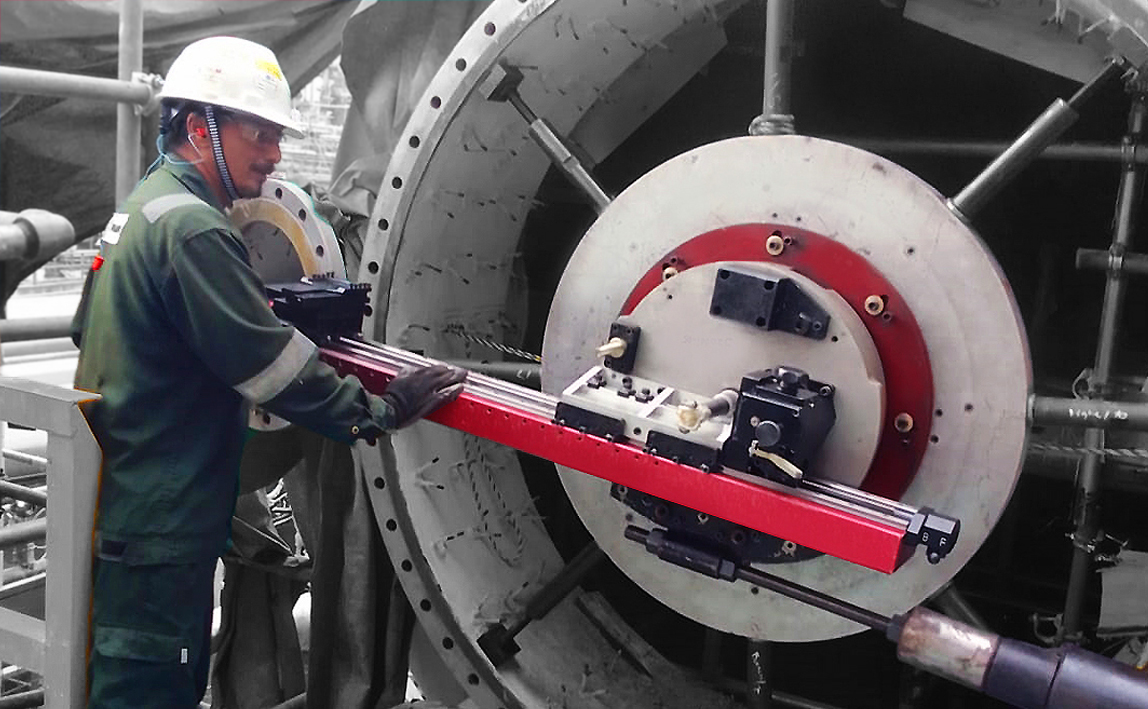
Flange facing on-site service refers to the process of machining or refinishing the mating surfaces of flanges in industrial settings, such as refineries, chemical plants, power plants, and other facilities where pipelines are used. Flanges are used to connect pipes, valves, and other equipment together in a secure and leak-proof manner.
Over time, flange surfaces can become damaged, corroded, or warped due to various factors such as exposure to high temperatures, pressure, or chemical substances. This can result in leaks or inefficient sealing, leading to operational problems and safety hazards.
Petracarbon skilled and experienced machinists are using Jupiter flange facing machines to resurface the flange mating surfaces. Petracarbon’s machinists can face from 2” diameter up to 126” diameter on any materials such as cast iron, steel, stainless steel, or exotic steels with the right machine. Each flange facer model can be adjusted to meet the surface finish as required by the industrial standard.
This includes the following steps:
Technicians assess the condition of the flange surfaces to determine the extent of damage or wear.
The area surrounding the flange is prepared to ensure safety and accessibility for the machining process.
Using Jupiter machining equipment, technicians removes a thin layer of material from the flange mating surfaces to restore flatness, smoothness, and parallelism. This process may involve facing, turning, milling, or grinding depending on the specific requirements of the flange.
After machining, technicians carefully inspect the surfaces to ensure that they meet the required specifications for alignment, surface finish, and dimensional accuracy.
In some cases, pressure or leak tests may be conducted to verify the integrity of the flange joint after machining.
Detailed records of the service, including inspection reports, machining parameters, and test results, are typically documented for quality control and compliance purposes.
Applications
On-site flange facing services offer several advantages over traditional off-site machining or replacement of flanges. These include reduced downtime, cost savings, and the ability to address issues without dismantling large components or shutting down entire systems. Additionally, on-site services can be tailored to suit specific project requirements and can be performed in challenging environments where transportation of large equipment may be impractical or costly.
Click here to View our Flange Facing Machines